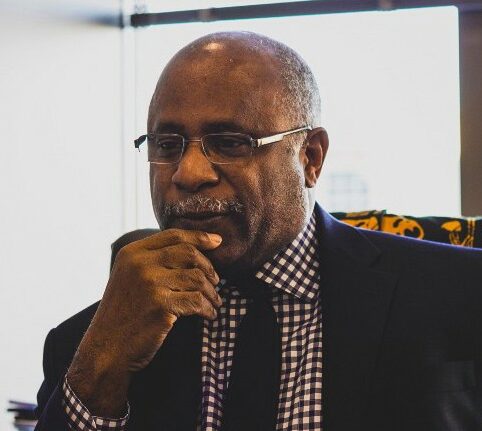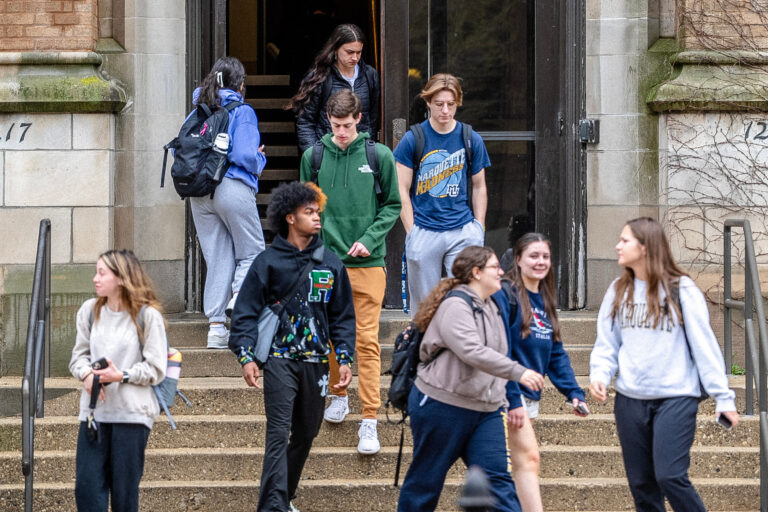
By Dr. William Welburn, vice president for inclusive excellence
Today is a historic moment for our country, as President Biden officially declares Juneteenth a federal holiday – the first new one in decades.
As a young adult, the word “Juneteenth” was an enigma to me. I grew up in Pennsylvania, more than 1,700 miles away from Texas, and the mid-Atlantic region retained a history of contradictions over slavery and freedom for my ancestors. To hear the story of Juneteenth — a holiday celebrating June 19 when news of the emancipation of enslaved Africans reached Texas — seemed troubling and inconsistent. Had the Emancipation Proclamation not been signed two years earlier? Did Robert E. Lee not surrender two months before? And did it not apply only to those Confederate states, including Texas? What about my great-grandmother, Lucy Townsend, who as far as I could tell was still enslaved in Delaware, a South sympathizing Union state?
I had missed the point. And so has America.
When I met my wife, Janice, she was only a year out from her college years in Dallas. She often talked about Juneteenth celebrations in Texas. Her recollections concurred with the work of the late folklorist and Tyler, Texas, native William Wiggins. Wiggins wrote extensively about the “continuing influence” of Emancipation celebrations across Black communities in the 20th century. Juneteenth has figured most prominently among the celebrations in the stories that he gathered, especially in Texas. Texas was large and there was a diasporic flow of Black people into and through the state from other areas of the South, many of whom took Juneteenth to the West Coast.
But Juneteenth’s national significance had deeper meaning.
The idea of Black freedom is embodied in Juneteenth. Historian Annette Gordon-Reed begins her new book, On Juneteenth, with a reflection. Despite the Confederacy’s formal surrender at Appomattox, “The Confederate army had continued to fight on in Texas until mid-May. It was only after they finally surrendered that Major General Gordon Granger, at his headquarters in Galveston, prepared General Order Number 3, announcing the end of legalized slavery in the state.” Texas was a peculiar battleground in the fight over enslaving Africans. Although Mexico had ended slavery by the end of the 1820s, white Southerners expanded the institution to Texas. Many enslaved Africans in Texas escaped south to Mexico. Some writers have pointed to the presence of Southern soldiers such as Robert E. Lee there to protect the frontier just before the Civil War.
Emancipation was powerful, and in Texas emancipation had taken on a very special meaning. As historian and former Marquette Mitchem Dissertation fellow Brandon Byrd wrote, “The remembrance of that Emancipation, the very moment when an unknown future first beckoned, was passed down to subsequent generations.”
I realize that celebrating Juneteenth, with parades and family gatherings over food, feels like watching the removal of a Confederate flag and monuments to those committed to retaining the institution of slavery. What we choose to remember can also shape how we engage now in our communities, in our nation and across our world. The struggle for freedom and equality has taken on special meaning for those who descended from enslaved Africans, who called on our nation to recognize the contradictions in the act of emancipation and the meaning of freedom, especially during the Jim Crow era immediately following the Civil War and Reconstruction era.
It is an opportunity to celebrate all that we have been through together and who we might become as a nation fully committed to equality for all. As is written in the Emancipation Proclamation, “Upon this act, sincerely believed to be an act of justice, warranted by the Constitution, upon military necessity, I invoke the considerate judgment of mankind, and the gracious favor of Almighty God.”
Last year, the Office of Black Catholics of the Archdiocese of Baltimore issued a prayer for Juneteenth. They invited all in the Archdiocese to “celebrate this day as a reminder of the transformative power of human liberation. We encourage all to spend time with our families, reflecting on the meaning of the day by using this as a day of education about our collective history and taking the time to pray for real change.”
Regardless of how we came to this moment, we are here now, and the fulfillment of emancipation is well within our reach.
Happy Juneteenth!



